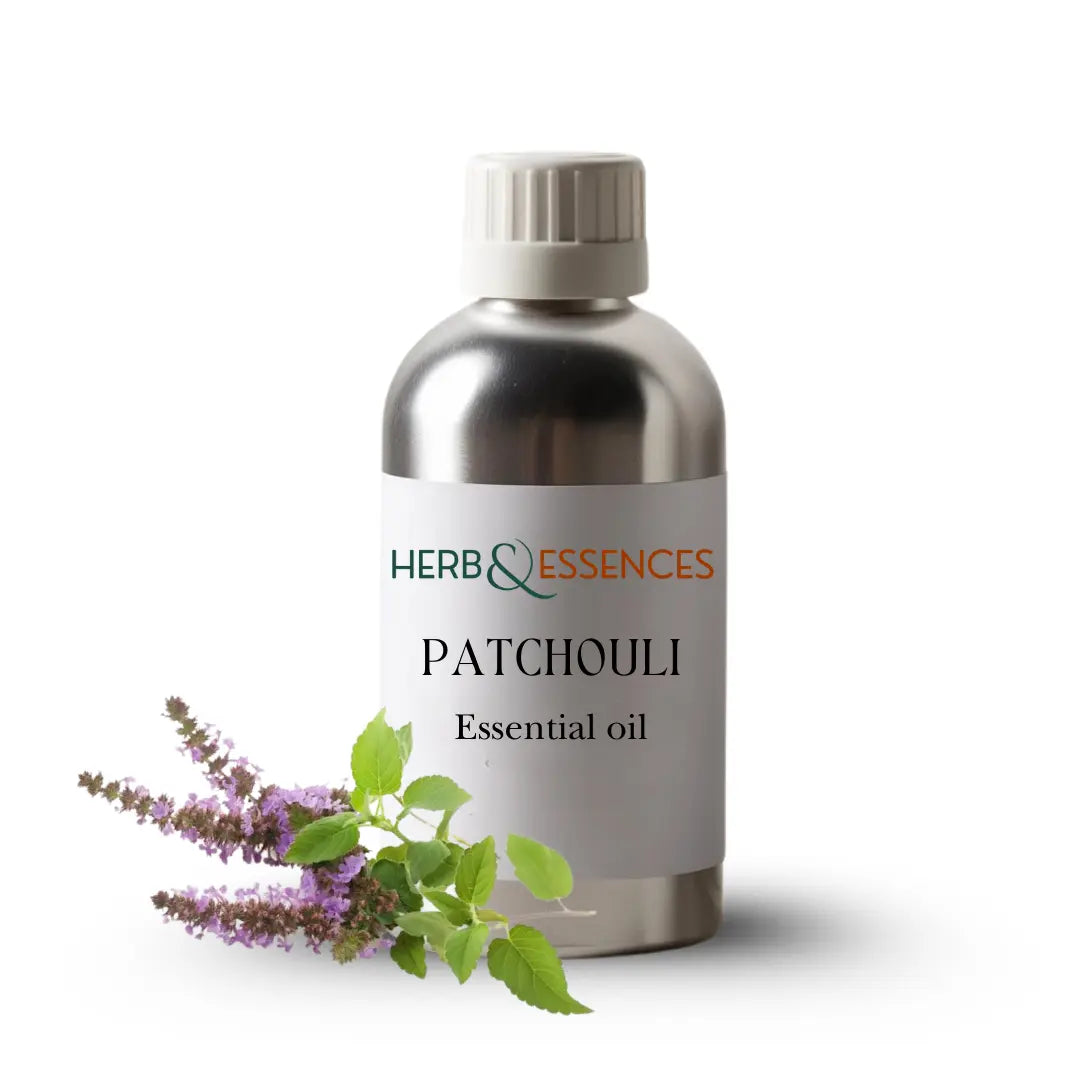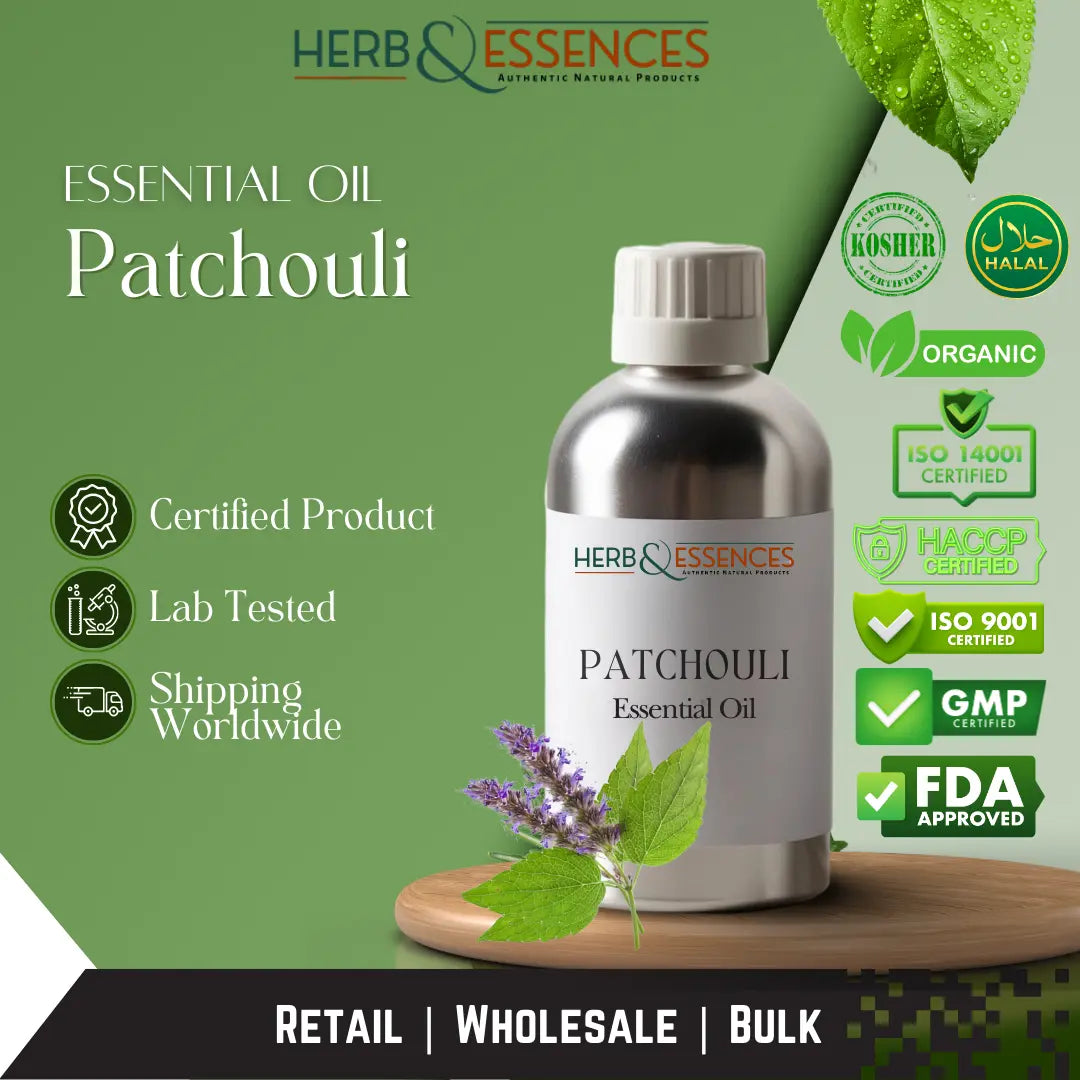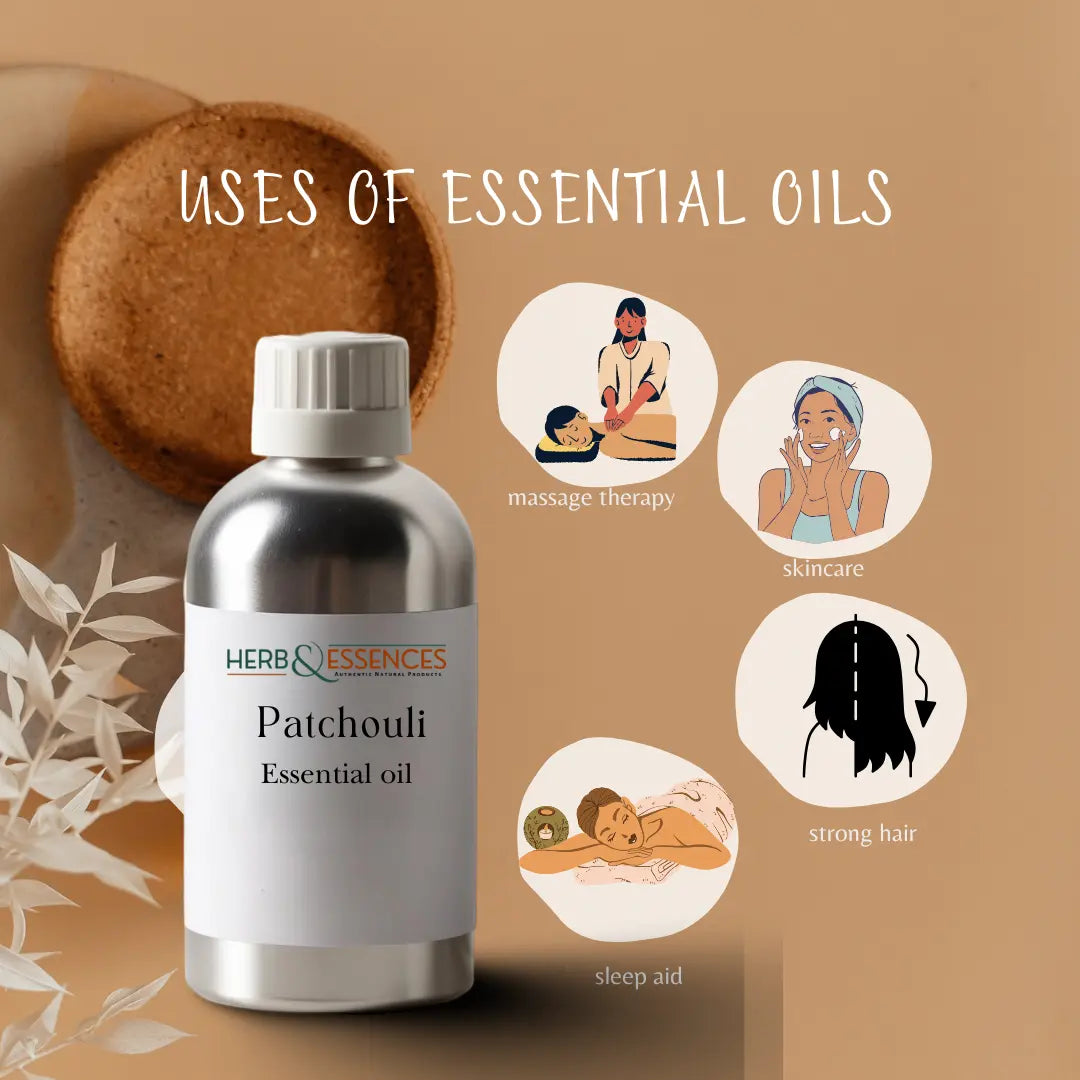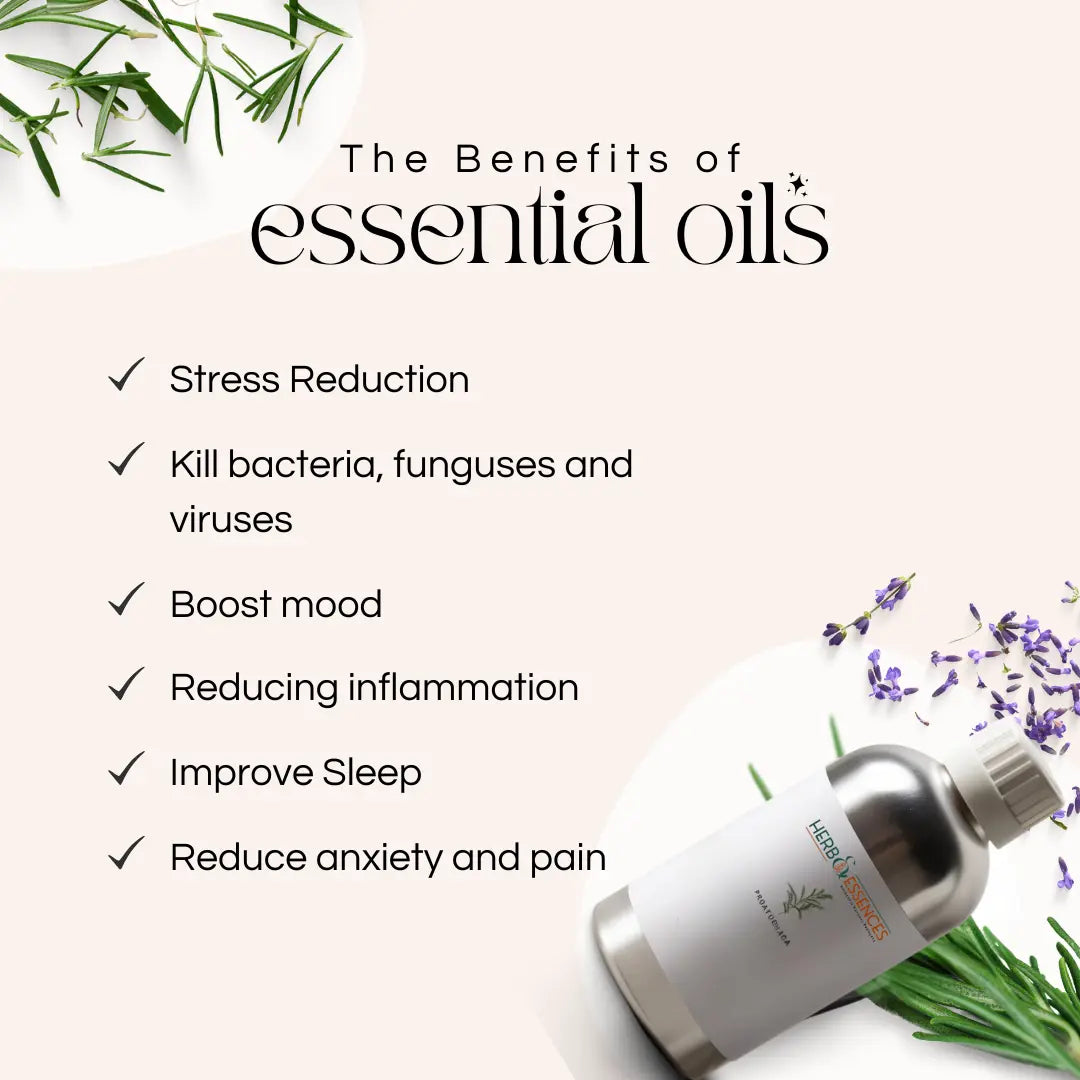Patchouli Essential Oil
Patchouli Essential Oil
Couldn't load pickup availability
Share
Patchouli Essential Oil Description
Botanical Information
Patchouli essential oil is derived from the leaves of Pogostemon cablin, a tropical herb in the Lamiaceae family, also known as the mint family. Renowned for its earthy, musky, and slightly sweet aroma, Patchouli has been a cornerstone in perfumery, traditional medicine, and spiritual practices for centuries. It is often associated with grounding and balancing properties.
Origin and Source
Patchouli is native to Southeast Asia, particularly countries like Indonesia, India, the Philippines, and Malaysia. Today, it is cultivated in tropical regions worldwide. The oil is produced from the mature, harvested leaves, often sun-dried and fermented to enhance their oil content before extraction. Sustainable farming ensures the preservation of biodiversity and the highest quality oil.
Extraction Method
Patchouli essential oil is extracted through steam distillation:
• The dried and fermented leaves are distilled to extract the aromatic compounds. This method produces a rich, concentrated oil while preserving its complex fragrance and therapeutic properties.
Physical Properties
• Appearance: Golden brown to deep amber liquid with a medium consistency.
• Aroma: Earthy, musky, woody, and slightly sweet with warm, herbaceous undertones.
• Viscosity: Medium, ideal for blending with carrier oils and other essential oils.
• Solubility: Insoluble in water; soluble in carrier oils, alcohol, and aromatic solvents.
Technical Specification
• Specific Gravity: 0.950–0.980.
• Refractive Index: 1.500–1.510.
• Flashpoint: Approximately 95°C.
Uses and Applications
• Aromatherapy: Promotes relaxation, emotional balance, and grounding.
• Skincare: Used in creams, balms, and lotions for its anti-inflammatory and skin-rejuvenating properties.
• Perfumery: A key ingredient in perfumery as a base note, adding depth and longevity to fragrances.
• Massage Therapy: Blended with carrier oils for calming massages that soothe the body and mind.
• Natural Remedies: Traditionally used to alleviate minor skin irritations and boost circulation.
• Spiritual Practices: Incorporated into rituals and meditation to enhance grounding and focus.
Benefits and Properties
• Grounding and Balancing: Reduces stress, anxiety, and emotional tension.
• Skin-soothing: Hydrates and rejuvenates the skin, helping to reduce wrinkles and scars.
• Anti-inflammatory: Calms irritation and redness, supporting healthier skin.
• Aromatic Depth: Enhances fragrance blends with its earthy, musky complexity.
• Mood-enhancing: Promotes emotional stability and a sense of calm.
Safety Information
• Dilution: Always dilute Patchouli essential oil with a carrier oil before applying directly to the skin to avoid irritation.
• Patch Test: Test a small area of skin to ensure no sensitivities or allergic reactions.
• Avoid Contact: Do not apply near sensitive areas, such as the eyes or open wounds.
• Medical Precautions: Consult a healthcare professional if pregnant, breastfeeding, or undergoing medical treatment.
• Keep Away: Store safely out of reach of children and pets.
Storage and Shelf Life
• Storage: Store in a cool, dry place away from sunlight, heat, and moisture. Use amber or cobalt blue glass bottles to preserve the oil’s aromatic quality.
• Shelf Life: Typically lasts 2–3 years when stored under optimal conditions.
Packaging and Handling
• Packaging: Glass bottles are ideal for smaller quantities, while HDPE containers are suitable for bulk storage.
• Sealing: Ensure containers are tightly sealed to prevent evaporation and contamination.
• Handling: Use sterilized tools during transfer or application to maintain purity.
Sustainability and Ethics
• Eco-conscious Practices: Produced using sustainable cultivation and harvesting methods to protect Patchouli plants and their ecosystems.
• Cruelty-free: Not tested on animals, adhering to ethical production standards.
• Vegan-friendly: Contains no animal-derived components, making it suitable for environmentally conscious consumers.








